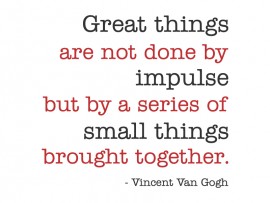Community life competence
Connecting local responses around the world
Connect with us
Website: the-constellation.org
Newsletter English, French Spanish
Facebook https://www.facebook.com/pages/The-Constellation/457271687691239
Twitter @TheConstellati1
Instagram: https://www.instagram.com/constellationclcp/
40 ways to help your organization survive tough financial times
By Isaac Roy Kyeyune, Director at FIND Partners International in Kampala. (This originally appeared as a guest post on how-matters.org.)
The year 2013 saw trends that are changing resource politics for civil society. These are a wakeup call to not only strengthen, but diversity your organization’s fundraising, as well as develop your structures, systems, and skills in resource mobilization:
Critical funding trends in 2013
- The global credit crunch;
- The temporally shut down of the US government;
- The potential rise of China and its partners as interested donors;
- The continued development of EU as a funding bloc;
- The increasing interest by donors in consortia rather than isolated projects;
- The change from sustainability to integration and holistic approach;
- The new era of implementation research as opposed to mere project interventions; and
- The emergency of modern technology and social networks on the funding scene.
We have declared 2014 a year for institutional resource independence at FIND Partners!
 So we share below 40 PRACTICAL TIPS on how you can steer your organization through resource-constrained times. Though we hope these tips won’t be necessary, roll up your sleeves now for a prosperous and more resourceful 2014!
So we share below 40 PRACTICAL TIPS on how you can steer your organization through resource-constrained times. Though we hope these tips won’t be necessary, roll up your sleeves now for a prosperous and more resourceful 2014!
Donor Cultivation
(1) Increase all resource mobilization activities to generate more funds. Tap into the local resources.
(2) Ask Board members to contribute or increase their existing contributions, and bring in additional individual donors to the organization.
(3) Ask your donors if it is possible to make more financial commitments (although this can be difficult for institutional donors).
(4) Cultivate relationships with a couple of donors that you can approach if “rescue funds” are needed.
Cost Savings
(5) Re-bargain contracts and consultancies. Negotiate services for lower costs such as fuel, bank charges, and exchange rates.
(6) Centralize secretarial services like photocopying and printing to avoid wastage and misuse.
(7) Limit field activities that may not necessarily affect the project outputs – such as supervisions.
(8) Officially ground some vehicles to avoid movement for non-essential journeys.
(9) Limit less critical services; intercom, newspapers, or reduce security guards.
 (10) Switch off unnecessary power lights and gadgets mostly at night. Ask someone to oversee this daily.
(10) Switch off unnecessary power lights and gadgets mostly at night. Ask someone to oversee this daily.
Alternative Sources of Funding
(11) Increase membership dues or costs. Always explain this to members.
(12) Explore non-typical sources of funding, e.g. renting some space, consultancies, sale of old equipment.
(13) Have your agency provide consultancy services to other agencies or organizations. Many Directors are slow on this. While it can take away from your organizations’ activities in the short-term, it can provide quick funding for your agency.
Strengthen Existing Systems
(14) Strengthen your financial, accountability and personnel monitoring systems. Staff are more likely to stretch these during tight financial times.
(15) If the staffs have a savings scheme, ensure it’s managed well especially during this period.
(16) Pay salaries on time, as always as you can. If this becomes not possible, always explain this to staff.
The Hard Choices
(17) Eliminate job-related redundancies in your organization. Sometimes, you can merge duties of a resigning staff to current staff rather than refilling a position.
(18) Revise staff contracts to short term and/or cut salaries or limit/suspend benefits payments like compensations or leave pays. While painful, this is always better than having your agency burst.
(19) Limit staff medical insurance to only health-threatening conditions.
(20) Hire out some services such as security guards, cleaning, auditing, etc. if it is cheaper than employing staff.
(21) Cut staff allowances, trips, and parties. Always explain this to staff.
(22) Suspend uncritical insurance policies.
(23) Keep your lawyers well updated in case any issues arise with staff or suppliers.
(24) Beef up security around your organization. Thefts tend to rise during uncertain periods.
Engage Staff
 (25) Ask respective units to devise means of cutting costs, e.g. the IT staff to ration internet surfing and downloads.
(25) Ask respective units to devise means of cutting costs, e.g. the IT staff to ration internet surfing and downloads.
(26) Ask top management to take some pay cuts or reduce time efforts.
(27) Inform and train your staff on effective resource use. Draft policies and guidelines on who, when, and how to manage critical assets such as cars or photocopy.
(28) Ask staff to double their efforts. This increases chances to get more funding.
(29) Suspend staff appraisals. They often generate unnecessary tension and contract negotiations.
(30) If Project activities are lighter, encourage staffs to go for leave. This softens demand to the general facilities, infrastructure, and services like food, internet, and transport.
(31) Train, support and mentor your staff away from costly personal ventures outside of work (e.g. alcohol consumption, smoking, gambling/borrowing, over-dating, clubbing, etc) as these may threaten their personal financial security.
(32) Create a buffer of volunteers and interns as you are likely to have many staff either resign, ask for leaves, or fall sick more regularly due to stress.
Strengthen External Relationships
(33) Share resources with partners doing similar work. For example, use same car for field visits.
(34) Engage government. Many of them (especially through the President’s Office in Uganda) are allowed to offer discretionally funding to key community activities that are struggling.
 (35) Ask for advice from other peer organizations and partners on how they are coping.
(35) Ask for advice from other peer organizations and partners on how they are coping.
(36) Manage external relations well and avoid negative publicity. Caution staff on both internal and external information sharing as it can worsen your creditability with the community and donors.
Stay Connected
(37) Talk to each of your staff personally to explain the situation but also show that you still value them.
(38) Ask supervisors to be highly involved (without necessarily micro managing) and more available. In such times, interpersonal conflicts/ problems tend to rise hence need to be urgently addressed. Ask supervisors to show extra care to staff in order to avoid more stress.
(39) Encourage social activities among staff. You can reserve a Friday evening for social activities like road workouts, internal competitions and dances, or prayer. This keeps staff together in hard times.
(40) Create hope. Be seen by your staff to be doing your best.
***
 Isaac Roy Kyeyune’s career spans a period of over seven years working in Uganda and across eastern Africa in the areas of: identifying funding opportunities; developing fundable concepts, proposals, and grant applications; building capacity of staff and stakeholders in resource mobilization and grant writing; setting up grants/resource mobilization offices/teams; building capacity in key institutional development issues such as strategic planning, management tools and structures, and mentorship, among others; and conference management and reporting.
Isaac Roy Kyeyune’s career spans a period of over seven years working in Uganda and across eastern Africa in the areas of: identifying funding opportunities; developing fundable concepts, proposals, and grant applications; building capacity of staff and stakeholders in resource mobilization and grant writing; setting up grants/resource mobilization offices/teams; building capacity in key institutional development issues such as strategic planning, management tools and structures, and mentorship, among others; and conference management and reporting.
Kyeyune has worked with Makerere University, Ndejje University, Uganda Cancer Institute, International Health Sciences University, many research Institutions, and over 100 non-governmental organizations, community-based organisations, and civil society networks.
Kyeyune hold a Bachelors of Arts Degree in Adult and Community Education, and is currently pursuing a Masters of Arts degree in Community Development and NGO Management.
© 2025 Created by Rituu B. Nanda.
Powered by
![]()
You need to be a member of Community life competence to add comments!
Join Community life competence